Disclosure:
This content, except as otherwise indicated or stated on this site, is the property of TransUnion Rental Screening Solutions, Inc. This content is for educational purposes and for convenience only. Trademarks used are the property of their respective owners, and no endorsement or affiliation is implied. The information presented in this content is “as is” without warranties of any kind, and specifically is not represented to be complete and does not constitute legal advice, and is subject to change without notice. You are encouraged to check these terms from time to time for changes, and by accessing this site you agree to these terms and all terms listed. Laws and regulations may vary by state and locality. Consult your own counsel if you have legal questions related to your rental property practices and processes.
Conducting a credit and criminal check on your applicant is one of the best ways to find out if they’re the right fit for your property. Tenant screening gives you a well-rounded view of who they are, their ability to pay, and whether renting to them is a risky move. SmartMove recently conducted a nationwide survey featuring nearly 4,000 landlords to gather more information about the attitudes of today’s landlords regarding tenant credit and criminal checks.
The results revealed the four most important tenant screening factors that matter to landlords in today’s increasingly competitive rental market. Let’s take a look.
1. Credit Score
The credit score is an important factor when evaluating a prospective tenant because it’s a good indicator of whether or not they will pay their rent on time. According to the data, most landlords are confident that they know how to interpret a credit score:
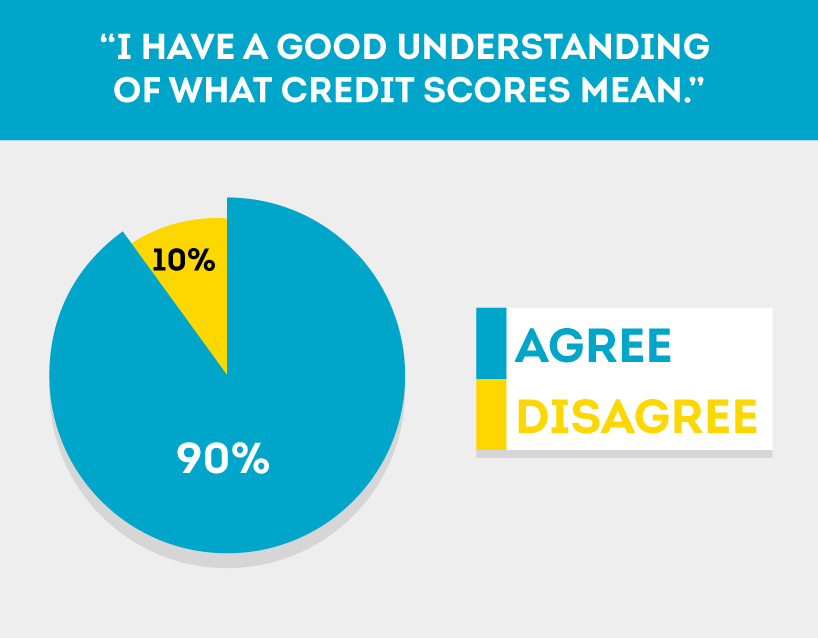
Landlords also want a score that’s tailored to the rental market as opposed to a typical credit score. SmartMove’s ResidentScore takes your tenant screening a step further by providing a view specifically tailored to the rental industry compared to a typical credit score.
Based on the rental outcomes of over 1.5 million individuals across the nation, ResidentScore takes into account nearly 1,000 credit variables that are most indicative of rental outcomes. The result is a statistically-based model that predicts evictions 8%* better than a general credit score in the bottom score ranges where risk is greatest.
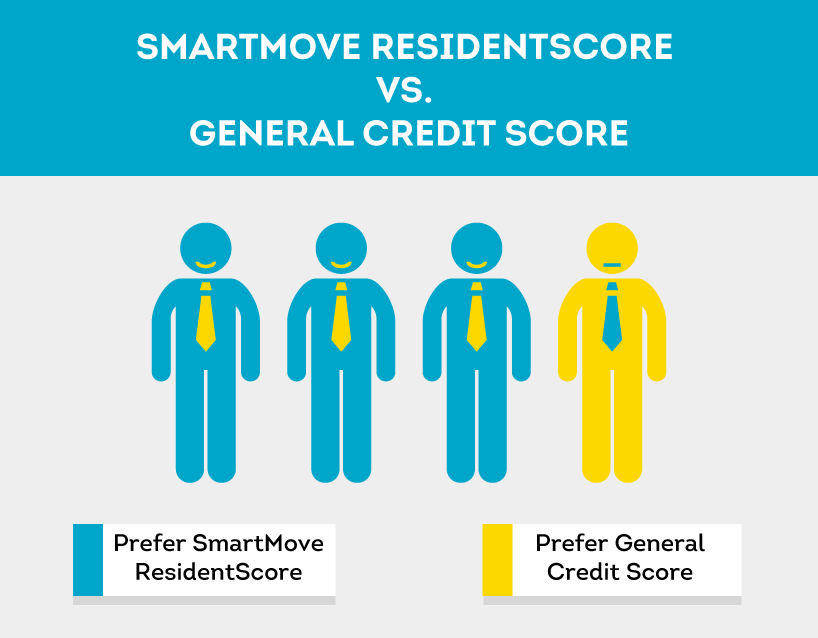
By utilizing the powerful data and analytics of TransUnion, ResidentScore is specifically designed for the rental industry. It is built to predict the risk of the following tenant-related outcomes in a 12-month period:
- Evictions and/or
- 3+ late payments and/or
- Insufficient funds
By using ResidentScore in combination with a full tenant screening package, landlords can get an in-depth look at an applicant’s background and help reduce their risk of leasing to a bad tenant.
2. Credit Report
However, a credit score alone doesn’t tell you everything. Not surprisingly, landlords want to see the story behind the score. Four out of five users surveyed disagreed with the statement, “I don’t pay much attention to the credit report I just look at the credit score.”
A full credit report offers more insight into a prospective tenant’s overall financial situation.
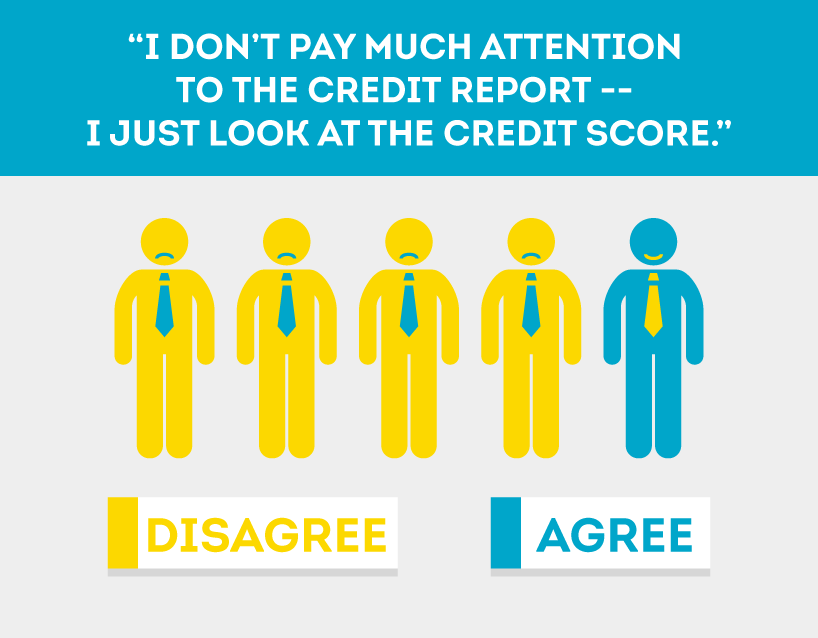
While occasionally an applicant will have poor credit due to a rough patch, a credit report is a good indicator of their ability and willingness to pay their bills. Landlords or property managers generally don’t expect perfect credit, but certain negatives and signs of chronic financial mismanagement are likely to give them pause. By learning how to read a credit report, you’ll be able to get a better overview of the applicant’s current ability to pay.
Past bankruptcies, collections for unpaid rent, and tenant judgments can indicate potential problems in the future. A credit report can help answer questions like: how much debt does this applicant have? Do they tend to make payments on time? What are their other financial obligations at this time?
3. Income
Income verification should be an important part of a thorough tenant screening process because it will help ensure that your applicant can afford the rent. In fact, 84%** of landlords say that non-payment is one of their top concerns about new tenants. Even if an applicant has made financial mistakes in the past,
having steady employment and a reliable source of income is a good indicator that your tenant will pay their rent on time.
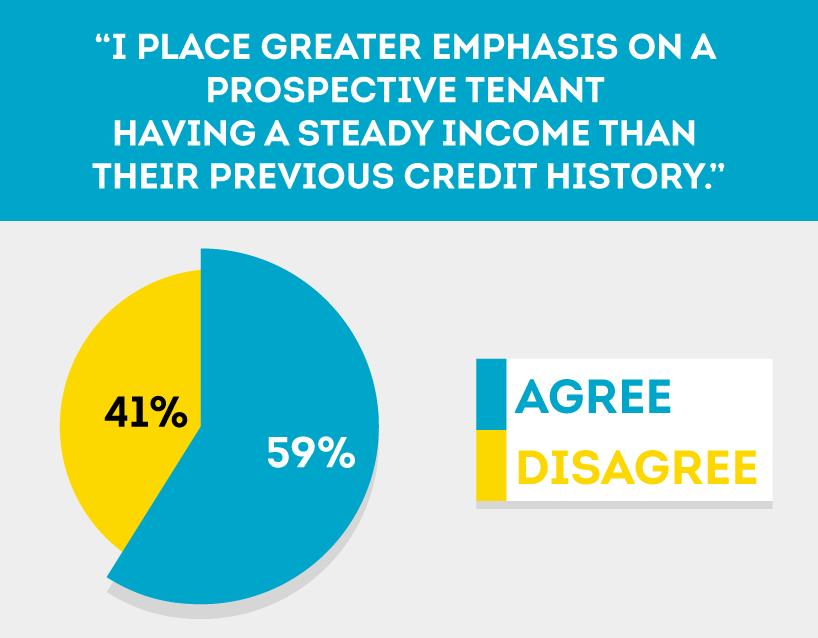
When screening for income, the industry standard income requirement for a qualified tenant is three times the monthly rent. In addition, there are steps that need to be taken in order to verify the applicant’s employer as well as source of income.
Many landlords will not trust information provided at face-value by a prospective tenant, nor should they. Information on an application can all too easily be manipulated, or important information omitted. According to our survey, 86% of landlords will verify an applicant’s information. It is a good idea to request a current pay stub in order to verify current proof of income, and to have an actual conversation with their employer in addition to gathering personal references. However, this step alone doesn’t take the place of a complete tenant screening.
4. Criminal History
Having good credit doesn’t necessarily mean an automatic shoo-in. Landlords also consider factors like income, relevant criminal convictions, and past evictions. While credit history is important to most landlords, they generally view criminal history report that indicates a risk to others’ safety and property as even more important in their screening decision.
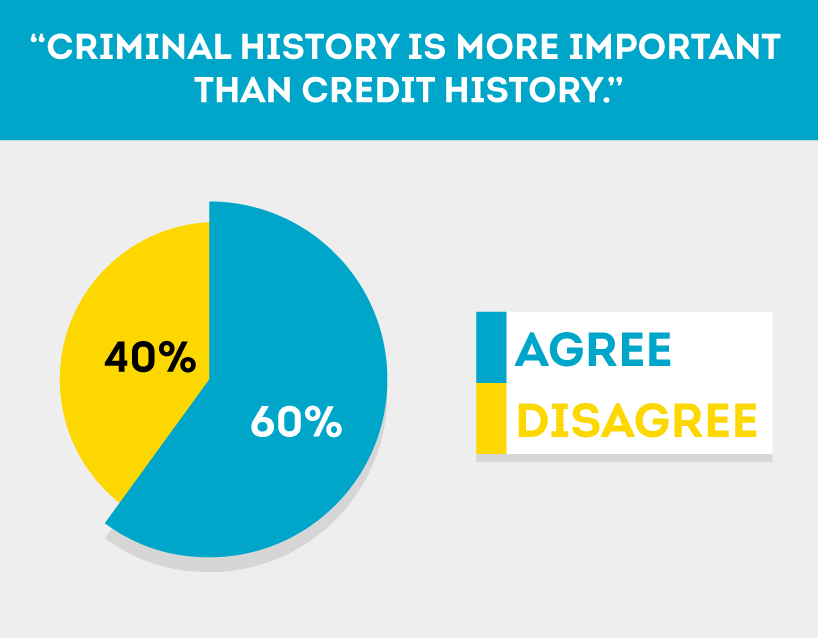
It’s not surprising to see the importance of relevant criminal history to landlords. This is an important piece of an applicant’s background that you’ll need to check before deciding if the applicant presents a risk to the safety of neighbors or property. It’s best to set expectations upfront during the pre-screening process, so you don’t waste your time or the applicant’s time. While you still need to check criminal history through a reliable source, it reduces the chance that applicants who don’t meet your requirements will apply.
Conclusion
Conducting credit and criminal checks on prospective tenants is clearly a highly influential factor for most landlords when deciding whether to lease to a prospective tenant. Adding on an eviction report can give even more insight into an applicant’s background.
According to TransUnion’s recent analysis, evicted residents had nearly three times as many prior eviction and rental-related collection records than non-evicted residents. While a credit report provides important information about an applicant’s financial history, an eviction report can give insight into their rental history including comprehensive public record information that is important for a landlord to know. Therefore, having an eviction report can help you better predict if an applicant will be a good tenant who not only is less likely to get evicted, but will pay their rent on time.
TransUnion SmartMove is an easy, reliable online tenant screening solution designed for independent landlords who don’t manage hundreds of properties. Landlords receive a TransUnion credit report formatted exclusively for rental screening purposes, a criminal report that draws from hundreds of millions of national and statewide criminal records, and a national eviction report.
Ready to check your applicant’s background?
94% of landlords are likely or somewhat likely to recommend SmartMove to a friend or colleague.
*Based on an internal comparative study conducted by TransUnion in 2013.
**2014 SmartMove user survey
Know your applicant.
Additional Disclosure:
The information posted to this blog was accurate at the time it was initially published. We do not continue to guarantee the accuracy or completeness of the information provided. The information contained in the TransUnion Rental Screening Services, Inc. blog is provided for educational purposes only and does not constitute legal or financial advice. You should consult your own attorney or financial adviser regarding your particular situation. For complete details of any product mentioned, visit www.transunion.com. This site is governed by the TransUnion Rental Screening Privacy Policy Privacy Notice located at TransUnion Rental Screening Solutions, Inc. Privacy Notice | TransUnion.



